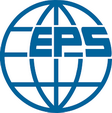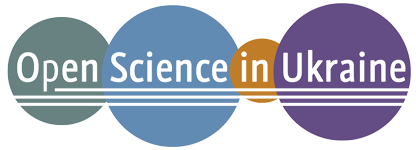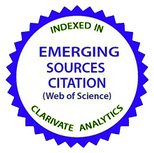Synthesis of CdSe/ZnS Nanoparticles with Multiple Photoluminescence
DOI:
https://doi.org/10.15330/pcss.21.1.105-112Keywords:
nanostructures, Core-Shell, CdSe, ZnS, quantum dots, photoluminescenceAbstract
The CdSе/ZnS nanostructures of Core-Shell type, that have multi-wave emission, are described and a scheme of possible energy transitions in the studied system is presented. CdSe nuclei were synthesized by mixing cadmium and selenium precursors without creating an inert atmosphere. The cadmium complex with sulphanilamide was used as a cadmium precursor and simultaneously as a stabilizing ligand. To grow the shell, zinc stearate and thiourea were gradually added to the solution of cadmium selenide nuclei in octadecene at 200°C. TEM studies show that the obtained CdSe/ZnS nanoparticles have the shape close to tetrahedral with an effective diameter up to 10 nm. The thickness of the ZnS shell is about 3-4 nm. From the absorption spectra of the CdSe/ZnS nanoparticles, it is clear that the shell growth leads to a sharp increase in the absorption in the short wavelentgh area, which means the formation of a wide gap ZnS material.
The obtained CdSe/ZnS nanostructures emit three fluorescence peaks in the visible range. They are attributed to exciton transitions in the nucleus, recombination at defects of the boundary between the core and the shell, and recombination at defects of the shell. Such property provides CdSe/ZnS nanocrystals with a wide range of functionalities.
References
W. W. Yu, X. Peng, Angewandte Chemie International Edition. 41, 2368 (2002) (https://doi.org/10.1002/1521-3773(20020703)41:13<2368::AID-ANIE2368>3.0.CO;2-G).
Speranskaya Elena Sergeevna. Quantum dots based on cadmium selenide: production, modification and application in immunochemical analysis, Saratov - 2013. Abstract of the dissertation for the PhD of chemical sciences.
A. Teitelboim, N. Meir, M. Kazes, D. Oron, Accounts of Chemical Research 49 (5), 902 (2016) (https://doi.org/10.1021/acs.accounts.5b00554).
R. Taylor, T. Otanicar, G. Rosengarten, Light Sci Appl 1, e34 (2012) (https://doi.org/10.1038/lsa.2012.34).
Christophe Galland, Sergio Brovelli, Wan Ki Bae, Lazaro A. Padilha, Francesco Meinardi, Victor I. Klimov, Nano Lett., 13(1), 321 (2013) (https://doi.org/10.1021/nl3045316).
Krishna P. Acharya, Hue M. Nguyen, Melissa Paulite, Andrei Piryatinski, Jun Zhang, Joanna L. Casson, Hongwu Xu, Han Htoon, and Jennifer A., Hollingsworth Journal of the American Chemical Society 137 (11), 3755 (2015) (https://doi.org/10.1021/jacs.5b00313).
Peter Reiss, Joël Bleuse, Adam Pron Nano Letters 2 (7), 781 (2002) (https://doi.org/10.1021/nl025596y).
W. W. Yu, X. Peng, Angewandte Chemie International Edition 41, 2368 (2002).
Y.M. Andriychuk, A.S. Levinets, Y.B. Khalavka, Nanosystems, Nanomaterials, Nanotechnologies 16 (4), 693 (2018).
L. B. Matyushkin, O. A. Alexandrova, A. I. Maksimov, V. A. Moshnikov, S. F. Musikhin, Bionanotechnology and Biomaterial Science 26 (2) 27 (2013).
Ammar S. Alkhawaldeh, Matteo Pasquali, Michael S. United States Patent US7998271B2 – 2008.
Selenophene. Info card of compound. European Chemical Agency. Access: https://echa.europa.eu/substance-information/-/substanceinfo/100.157.009.
Xia, Xing & Liu, Zuli & Du, Guihuan & Li, Yuebin & Ma, Ming, J. Phys. Chem. C 114(32), 13414 (2010) (https://doi.org/10.1021/jp100442v).
Hao Wei, Yanjie Su, Shangzhi Chen, Ying Liu, Yang Lin, Yafei Zhang, Materials Letters 67, 269 (2012) (https://doi.org/10.1016/j.matlet.2011.09.082).
Dmitri V. Talapin, Ivo Mekis, Stephan Götzinger, Andreas Kornowski, Oliver Benson, Horst Weller, The Journal of Physical Chemistry B 108(49), 18826 (2004) (https://doi.org/10.1021/jp046481g).
T. V. Torchynska, J. Douda, R. P. Sierra, Phys. Status Solidi (c), 6, 143 (2009) (https://doi.org/10.1002/pssc.200881286).
Xiuli Wang, Jianying Shi, Zhaochi Feng, Mingrun Lia, Can Li, Physical chemistry chemical physics 13, 4715 (2011) (https://doi.org/10.1039/c0cp01620a).









